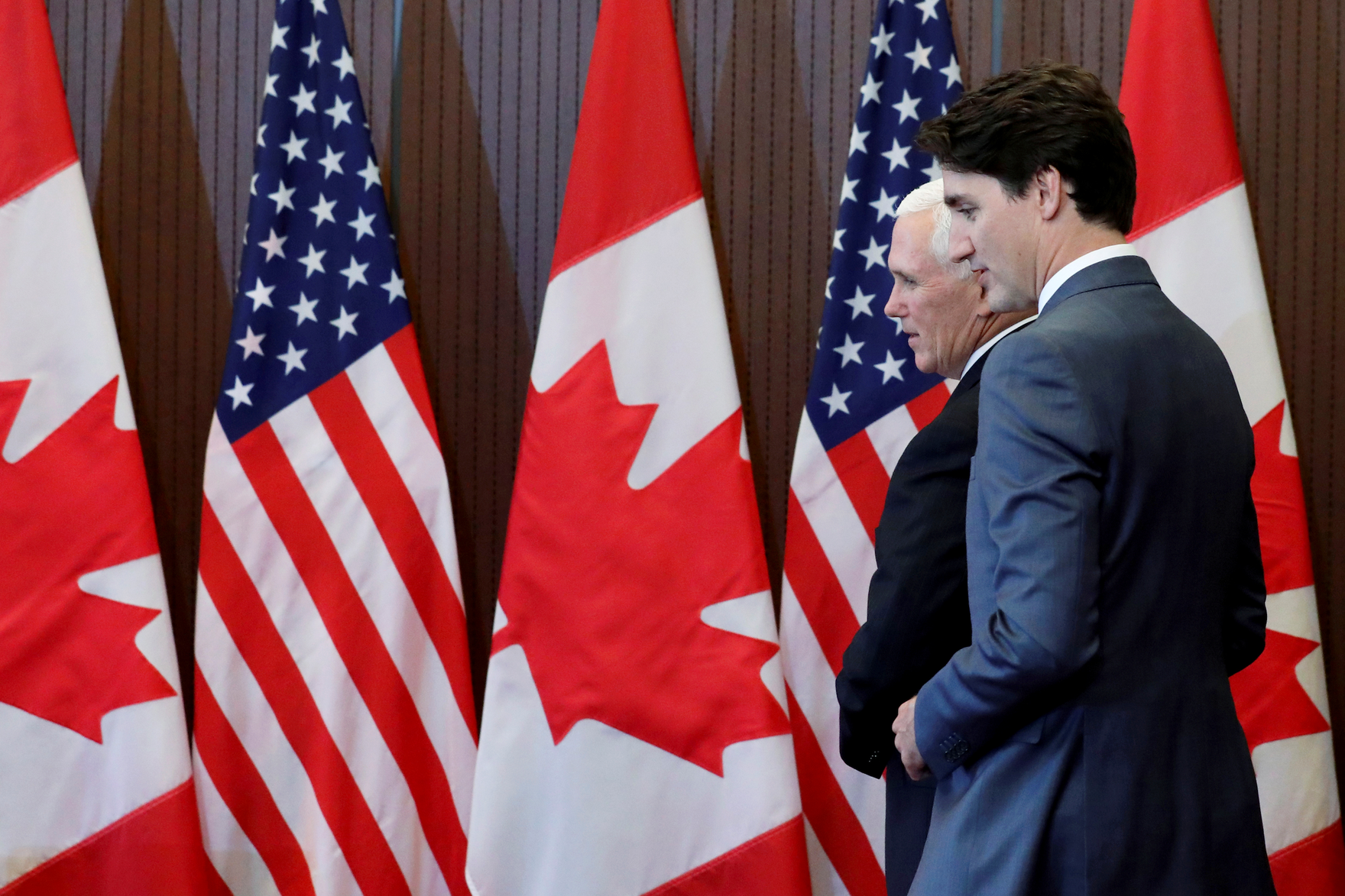American presidential elections can be tough on Canada.
Take 2024, for instance. Not only is there the real risk that a mercantilist bully and convicted felon will get himself re-elected president, but there’s a temptation, spanning the US political spectrum, to indulge in sabre-rattling in a trade relationship often deemed too big to fail.
What better way to rile up voters in Wisconsin than to point across the border at Canada’s system of dairy supply management, deemed an injustice to the heavily subsidized American farmer?
The trend has its corollary in the digital economy. So now, eight weeks before Democrat Kamala Harris faces off with Republican Donald Trump, the Biden administration serves further notice that it intends to formally take a swipe at Canada’s new Digital Services Tax.
“The United States opposes unilateral digital service taxes that discriminate against U.S. companies,” said US Trade Representative (USTR) Katherine Tai, quoted in an August 30 statement. The statement continues: “If the United States and Canada are not able to resolve the United States’ concerns through consultations within
75 days, under USMCA rules the United States may request the establishment of a USMCA dispute settlement panel to examine the matter.”
Granted, it’s not exactly the opening salvo in a new War of 1812. But it is yet another signal that when it comes to trade with Canada, America’s two deeply polarized political parties are not as far apart as one might assume.
The Biden administration is as fond of “Buy America” policies as its predecessor. It’s much more polite in delivering the message.
Canada’s Bill C-59 came into force June 28, 2024. The Digital Services Tax within it applies a three-percent tax on revenue related to online marketplaces, online targeted ads, social media and user data, where a company has global revenue of more than €750 million and Canadian digital services annual revenue of more than CDN$20 million. The tax is retroactive to January 1, 2022, and companies must begin paying it by
June 30, 2025.
Is this measure, as the USTR contends, in violation of commitments made under the USMCA to not treat US businesses less favourably than their Canadian counterparts? Presumably, a panel will eventually arbitrate the matter. Meantime, it’s worth considering the bigger picture.
There are good reasons to be wary of this tax. Most obviously, as with any protectionist measure, the cost invariably gets passed on to consumers. In August, Google announced it will impose a 2.5 percent surcharge on clients in Canada, beginning in October.
Second, international efforts to find a way of treating cross-border digital revenue have been under way for years and could be short-circuited if more countries go their own way. Third, and uppermost among concerns being raised by business groups, a new North American trade irritant in the digital space — adding to our existing difficulties with softwood lumber and dairy — is arguably the last thing Canada needs in the context of a new free trade agreement that must be reassessed and reaffirmed, by both sides, every six years.
Canada remains uniquely vulnerable to US trade action, as the superpower next door still accounts for three-quarters of our exports.
But there’s another side to this coin. The United States has a vested interest in protecting its largest technology companies, which include the social media giants, Google, Meta, Amazon, Apple, Microsoft and all their various tributary interests. Equally clearly, every country on Earth has been, and continues to be, roiled by a US-led digital transformation that shows no signs of slowing. If anything, it is gathering momentum, with the advent of generative artificial intelligence and, in the not-too-distant future, more freely accessible quantum computing.
At present, despite best efforts, there’s no multilateral global accord in sight to handle the taxation of digital trade in jurisdictions such as Canada, where massive multinational tech companies are harvesting user data and earning millions but with no corresponding incentive to contribute anything to that jurisdiction beyond the services they’re selling.
What should smaller nations do? Sit by while Google, Meta, Amazon and their peers effectively become the economies of every large and small community in the country?
A small tax on cross-border digital revenue is an inadequate lever for expressing dissatisfaction with a power dynamic that gives American corporations greater real influence in the lives of citizens, in some respects, than their own national governments. But it’s a lever, nonetheless.
Since Windows 98 brought the internet to our desktops, Canadians have seen more fundamental change than anyone alive 30 years ago could have imagined.
While much of this has been to the good — try navigating a late-summer road trip in an unfamiliar province, state or city without the Global Positioning System — it has also come at enormous cost and risk. As I argued here, human societies’ shared narratives, some of them fundamental, are fracturing as communications are accelerated and atomized, driven by big tech.
Surely citizens have the right, articulated through their democratically elected government, to push back against the companies abetting this, with no oversight other than that coming from Washington, DC? Judging from the torrents of nonsense, abuse and outright fakery flooding social media in the current US election cycle, that oversight isn’t working so well.
It’s good politics for American politicians to take economic jabs at its geographically vast, sparsely populated northern cousin. It’s also understandable that Canadians, using the limited means available to us, are sometimes inclined to say, “No. Enough.”
An earlier version of this piece appeared at michaeldentandt.substack.com.



